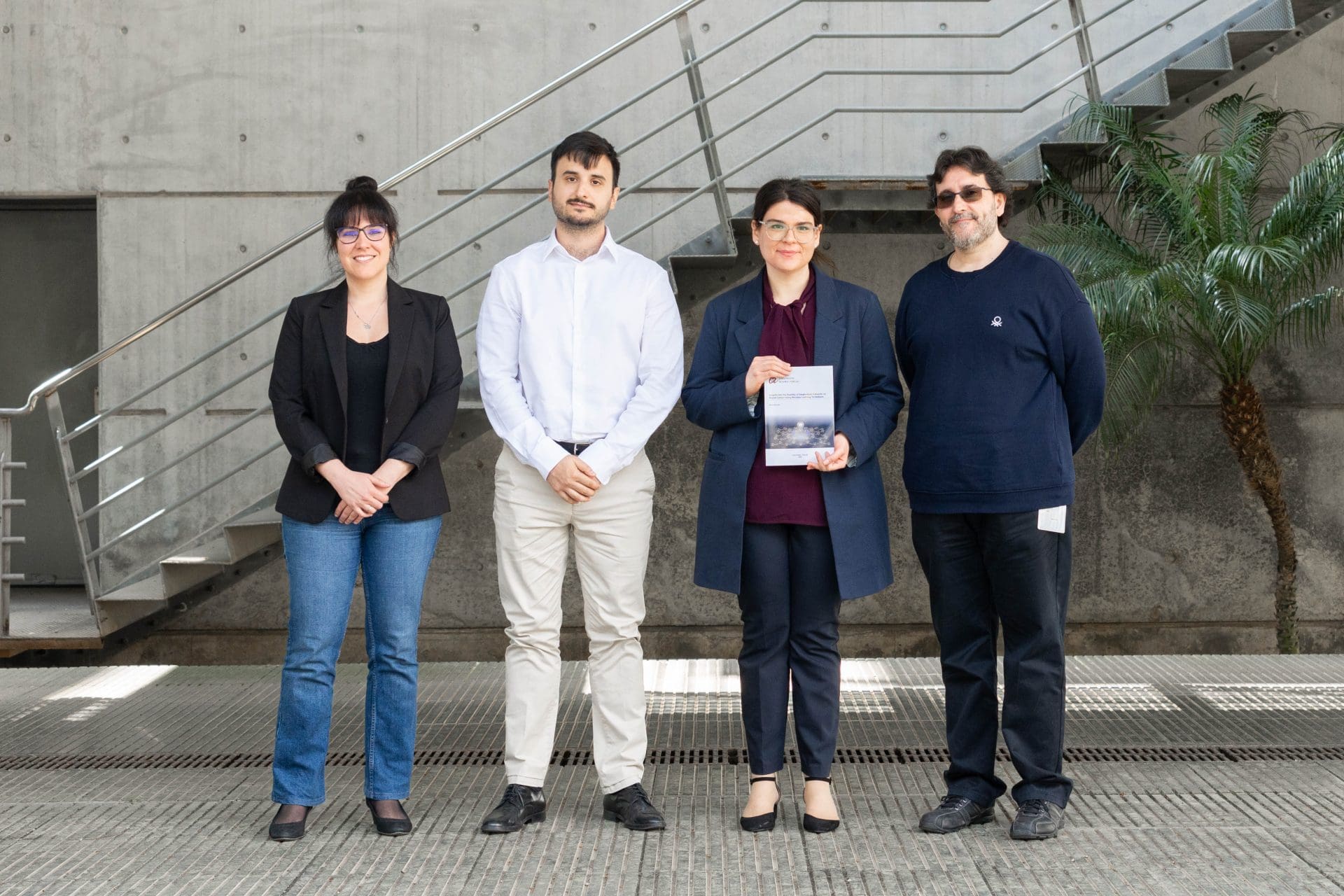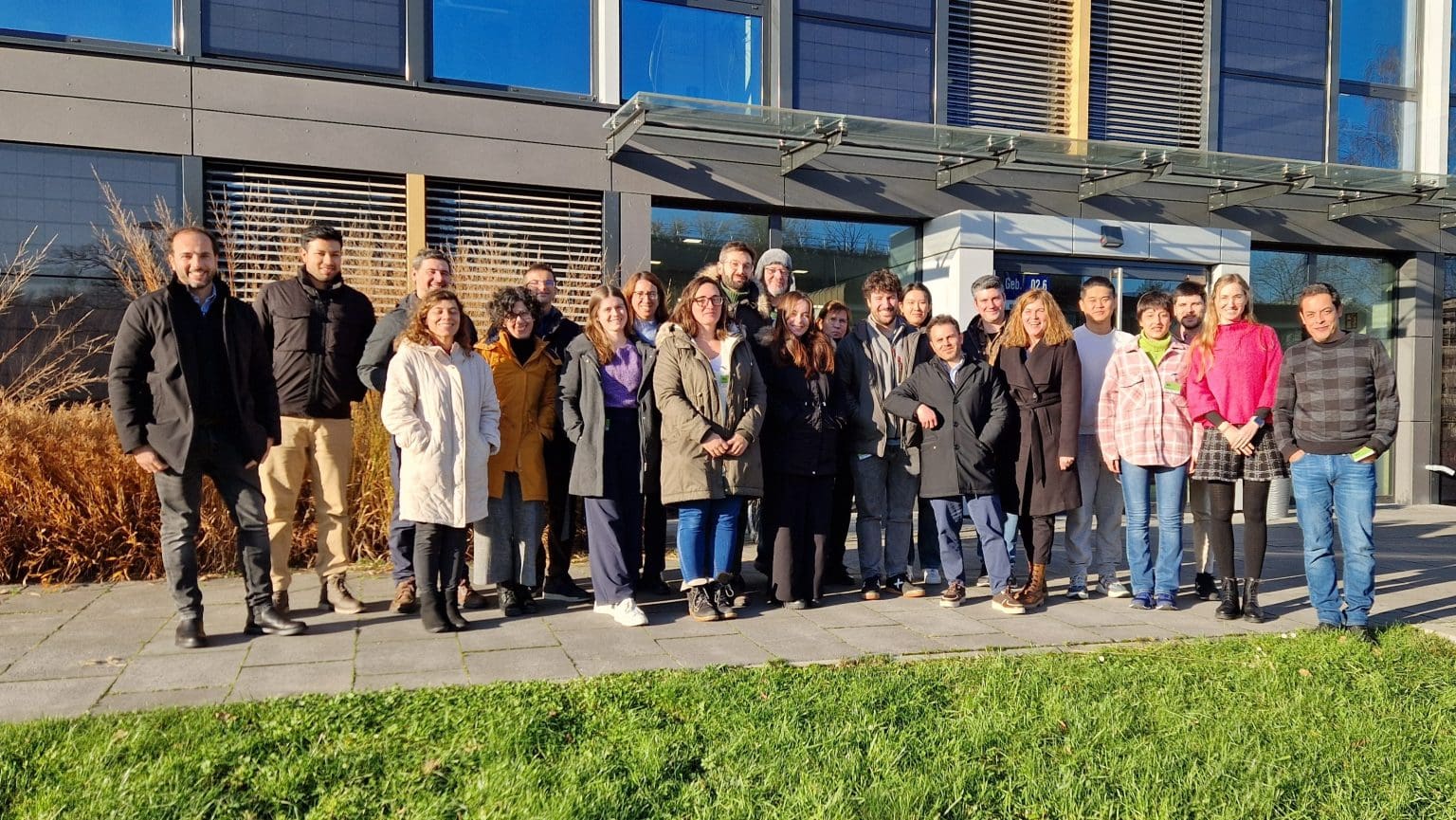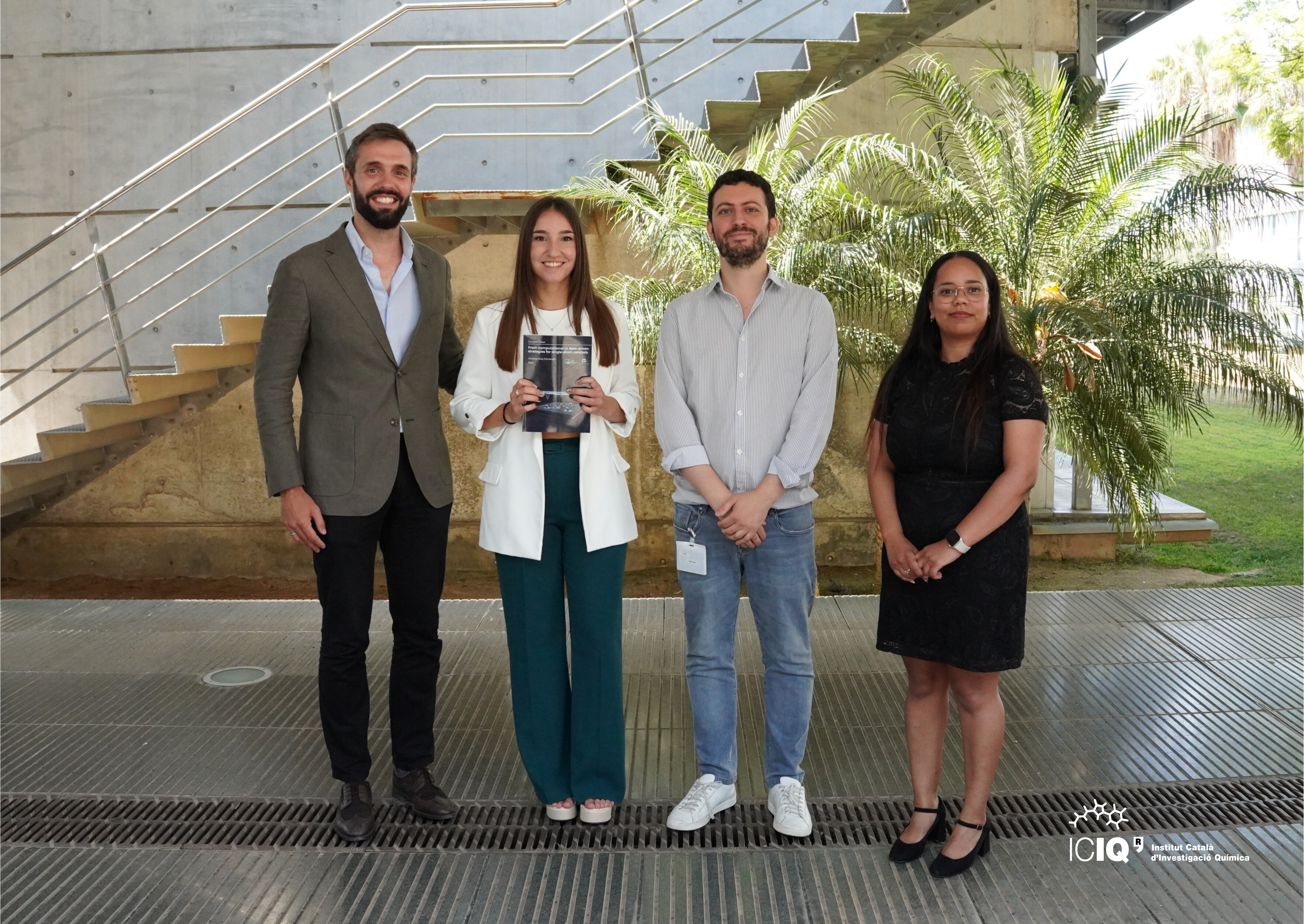Taming defective porous materials for robust and selective heterogeneous catalysis
6th May 2019 – The production of 1-butene via ethylene dimerization is one of the few industrial processes that employs homogeneous catalysis due to their high selectivity—despite the massive amounts of activators and solvents required. Now, a new paper by the University of the Basque Country (UPV/EHU), in collaboration with the López group at the Institute of Chemical Research of Catalonia (ICIQ) and RTI International, shows a more sustainable alternative via metal–organic frameworks (MOFs), a family of porous materials formed by metallic nodes connected through organic ligands.
The scientists demonstrate that tailored MOFs under condensation regimes catalyze the ethylene dimerization to 1-butene with high selectivity and stability in the absence of activators and solvent. The research, published in Nature Communications, opens new avenues to develop robust heterogeneous catalysts for a wide variety of gas-phase reactions.
Know your defects…
The researchers have engineered defects in the MOF (Ru)HKUST-1 without compromising the framework structure via two strategies: a conventional ligand exchange approach during MOF synthesis and a pioneering post-synthetic thermal approach. The researchers then characterized the defects — which have been shown to be catalytically active for ethylene dimerization.
Thanks to the computational resources of the Barcelona Supercomputing Center (BSC), which belongs to the ”Red Española de Supercomputación” (RES), the researchers were able to simulate realistic MOF systems to characterize the defects and compute the reaction mechanism. They found that unsaturated metal centers induced by defects drive activity, while the bimetallic nature of the node controls selectivity. After testing the catalytic performance of the system, they next improved the recyclability and robustness of the catalyst through one crucial condition: intrapore condensation.
…and fill the pores
Production of 1-butene via ethylene dimerization occurs in gas phase. When the reaction happens at low reactant pressure, some catalytic sites get deactivated due to the coordination of oligomers. But as pressure increases, the reactant molecules can condensate inside the pores of the material. Such a concentration effect avoids deactivation thus enhancing the stability of the catalyst.
The next steps of the project would involve the use of MOF catalysts based on first-row transition metals as well as the application of the novel intrapore condensation strategy to other gas-phase reactions.
“Gas reactions under intrapore condensation regime within tailored metal–organic framework catalysts” Iker Agirrezabal-Telleria, Ignacio Luz, Manuel A. Ortuño, Mikel Oregui-Bengoechea, Iñaki Gandarias, Núria López, Marty A. Lail and Mustapha Soukri, Nature Communications, 10, Article number: 2076 (2019)
Related news

Let's create a brighter future
Join our team to work with renowned researchers, tackle groundbreaking
projects and contribute to meaningful scientific advancements







 09-04-2025
09-04-2025 
















